"Invaluable" experiences for Naz students immersed in research
Andrew Vogler '23 (biochemistry) appreciates the importance of clean water as a trout fisherman and wants to reduce harm to the environment. His six-week summer research work with Prof. Stephen G. Tajc, Ph.D. at Nazareth examining a method to remove metals from water is "invaluable" experience, will help him get into graduate school, and advances his passion, he says: "I could have an impact on our planet."
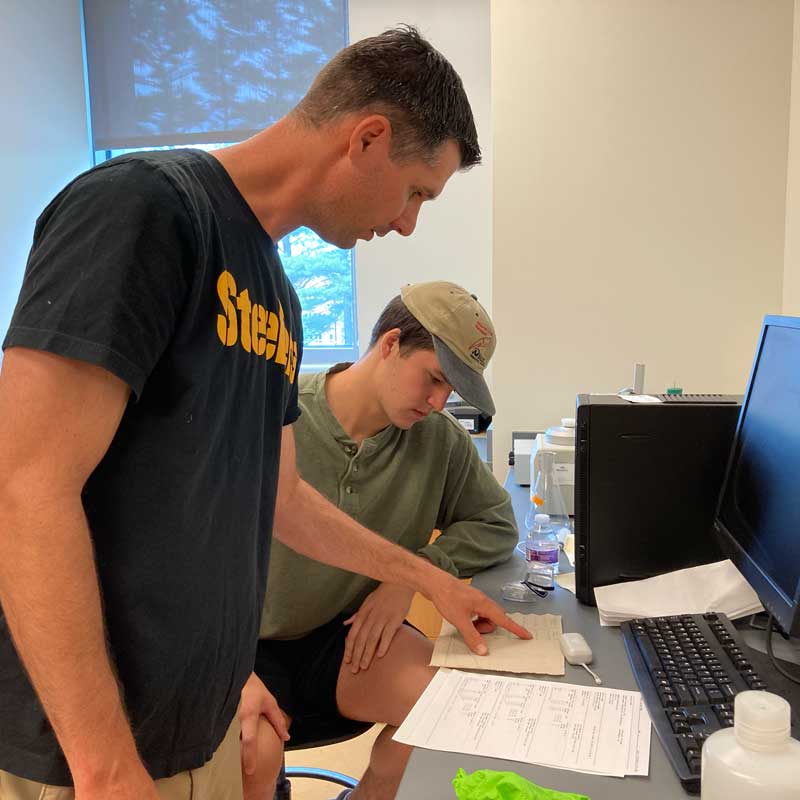
Prof. Stephen G. Tajc (standing) confers with student Andrew Vogler on his summer research work.
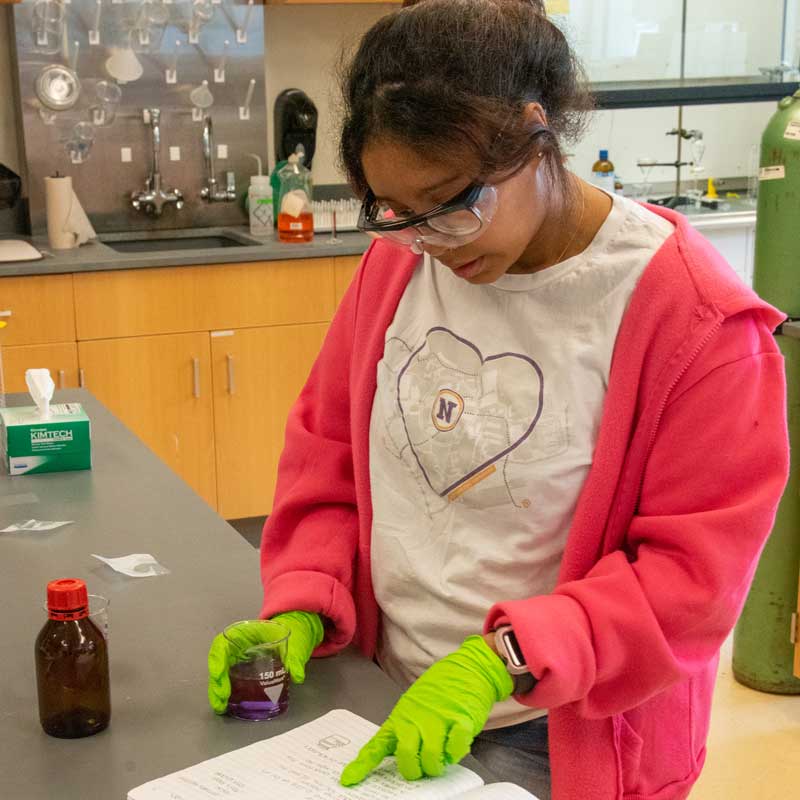
Halfway through her bachelor's degree, student Kiara Roman spent six weeks immersed in summer chemistry research on campus.
Meanwhile, Kiara Roman '24 (biomedical sciences, pre-vet) collaborated with another professor to help determine why a molecule behaves a certain way, which required learning chemical qualitative analysis techniques and how to use specific lab equipment. "I've gained so much knowledge. It's so exciting to learn new things," she says. "I want to go to vet school. That's going to look really good on my resume."
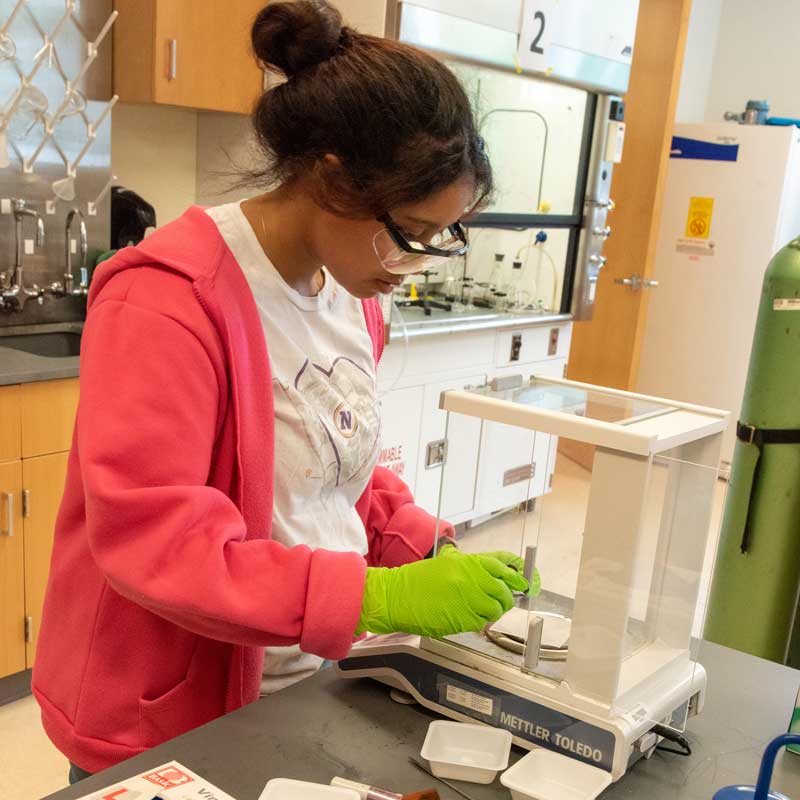
"That relationship you build with your professor is really important to me," says Kiara Roman.

Joe Nettles '25 (biochemistry, honors) connects remotely to a supercomputer in San Diego so he can calculate properties of a molecule that is used in modern drug design.
They are among more than two dozen Nazareth students immersed in research through an annual summer opportunity. Students conduct the research in elective courses with faculty in Peckham Hall on campus, using top-notch equipment and earning a stipend for their work.
Students also do chemistry and biology research during the fall and spring semesters, but devoting 20 hours a week to it during a summer term adds value, says Tajc, associate professor of organic chemistry and chairperson in the chemistry and biochemistry department.
Even students finishing their first year of college are eligible for summer research — which sets them up well for bringing knowledge and questions from hands-on experiences to their future courses.
"It's a way to fully immerse themselves in what their careers will be," says Tajc. "It teaches critical thinking and problem-solving."
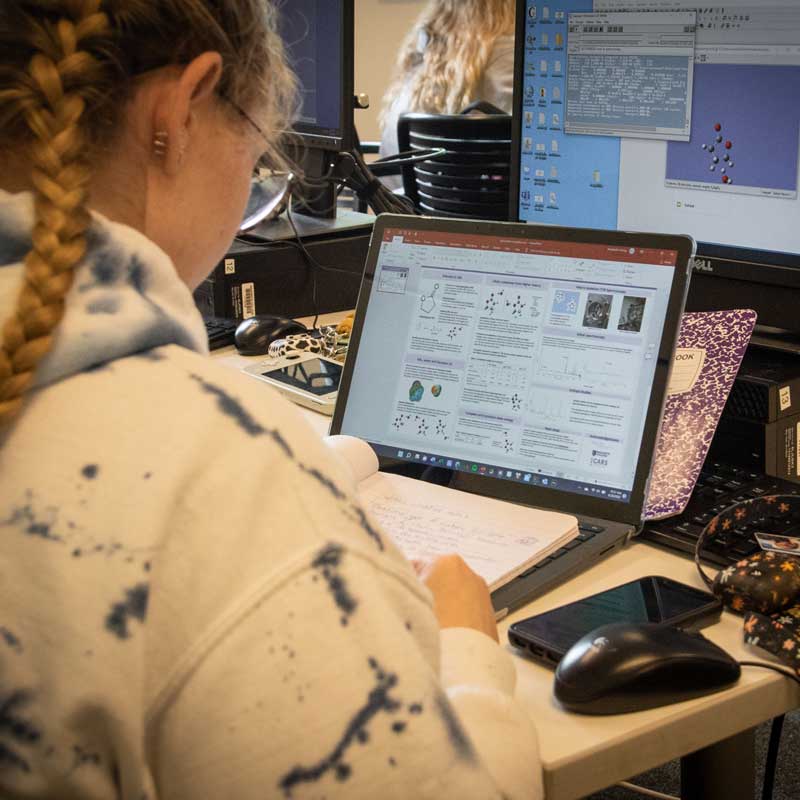
Annabelle Carney '23 (biochemistry, honors, biology) and her classmates, working with Prof. Josh Newby, examine small-scale interactions of water with specific molecules. Understanding how water interacts with other molecules can help us better understand things like drug design and air pollution.
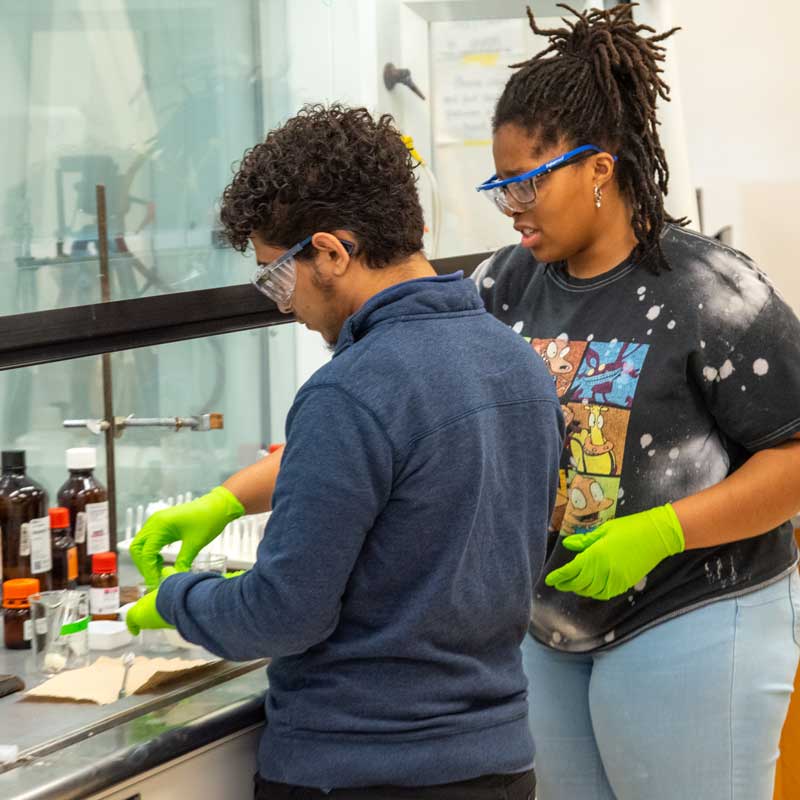
(Left to right) Rashid Saleh '25 (biomedical sciences, pre-med) and Sandra Perkins '24 (biomedical sciences) are experimenting with unknown esters (chemical compounds) using a reaction microwave to synthesize the compounds, designing a novel lab experiment for peers at Nazareth and elsewhere to learn from.
Jeremy Swartz '25 (chemistry and math) used a nuclear magnetic resonance instrument to examine why an unexpected research result occurred. "I'm definitely gaining experience in how to solve problems," he says. He's also getting experience designing problem-solving methods. He appreciated the blend of guidance and monitoring by his professor as well as time on his own to figure things out.
There are additional benefits. Summer research students also give group presentations to their peers about their work and travel during the academic year to National American Chemical Society meetings. The spring 2022 meeting — attended by 13 Nazareth students — was an amazing opportunity to network with professionals, graduate students, post docs, and others — and Nazareth students were recruited to go on and work with professors at the University of Buffalo and Syracuse University.